Gerrie Coetzee the First African to Win the Heavyweight Title!
By: Ken Hissner
After an amateur career with a 185-7 record Gerrie “Boksburg Bomber” Coetzee would start the long journey to be the first African to become the world heavyweight championship. Losing 3 times to Kallie Knoetze came to an end when in 1973 he stopped Knoetze for the Senior Amateur title. What seemed as a long shot he would overcome all the odds and road blocks he would encounter along the way.

Coetzee would turn professional in September of 1974 against the former South African champion Chris Roos, 11-6-2, seemed like the right opponent to start his career. In having what would be his only scheduled 4 rounder in his career he won the decision over Roos in Johannesburg, South Africa. He would score knockouts in his next 3 fights with a pair of first round knockouts of which one was an opponent from the Netherlands and another from the UK.
After Coetzee’s sixth fight he had won 3 by knockout and 3 by decision. Wanting to get a rematch for those he won decisions over he aimed to show improvement in knocking them out in return matches. He would start with Hennie Thoonen, 4-1, some 7 weeks after defeating him and coming off another decision win some 20 days after defeating Amedeo Laureti, 6-5-1, all over 6 rounds. Thoonen would be halted in 3 rounds this time. This followed with a rematch with Chris Roos who hadn’t fought in 13 months since being defeated by Coetzee. It was a totally different outcome this time stopping Roos in 3 rounds in his first scheduled for 8.
Feeling confident Coetzee would take a giant step taking on the veteran Jimmy Richards, 26-9-4, in February of 1976. Richards was 10-0-1 having won the South African title and drawing with American Henry Clark but losing his title to Mike Schutte over 12 rounds. Coetzee defeated Richards over 6 rounds. Then he moved back up to an 8 rounder against Hartmut Sasse, 11-6-1, from Europe and found himself on the canvas in the first round. He was able to rebound and take an 8 round decision over Sasse.
Then Coetzee had a rematch with Richards some 6 weeks after defeating him. This time he stopped Richards in the 9th of a 10 rounder. Next up American Ron Stander, 30-9-2, was brought in. He had failed in a world title fight with “Smokin” Joe Frazier. He stopped Stander in the 8th round of a 10. This set the stage for his first shot at the South African title against champion Mike Schutte a month later.
Schutte, 32-5-1, was on a 14 fight win streak at the time. It had been almost a year since taking the title from Richards and this would be his first defense in August of 1976. Coetzee was 12-0 at the time with almost 2 years of experience. By the 6th round Schutte was DQ’d and Coetzee was the new South African champion. Coetzee injured his right hand in this fight.
It would be 2 ½ months later when Coetzee would defend against his old nemesis from the amateurs Kallie Knoetz, 6-1, who had defeated Coetzee 3 times before Coetzee ended his amateur career stopping Knoetz. Coetzee went against his physician’s advice to fight having a pulled muscle in his back. Knoetz just 2 weeks earlier lost for the first time by DQ. This would be a 10 round non-title bout. Coetzee would take a decision win over Knoetz.
Now it was time for Coetzee to make the first defense of his title. He was considered the white champ and would be taking on the non-white champion James Mathatho, 12-4-1. He was 7-1-1 since taking his title. Coetzee would score a 7th round knockout. Pierre Fourie, 52-6-1, was next. He had failed twice trying to take Bob Foster’s light heavyweight title and failed both times. He was now on a 3 fight win streak. Coetzee would score a knockout in 3 rounds.
Next up would be a rematch for Coetzee with Schutte whom he won the South African title over. Schutte had rebounded defeating Americans Rodney Bobick and Chuck Wepner. Coetzee would take a 12 round decision over Schutte this time but had hurt his left hand in the second round and his right hand in the third round but showed quite a bit of courage in winning this fight over 12 rounds. After the fight his gloves had to be cut off due to the swelling in his hands.
After this fight a Johannesburg surgeon performed a complex operation on his right hand and also on his left hand at that time. He would be back in the ring 6 months later and win 4 straight fights against Americans stopping Tom Prater, 18-6-1, and Johnny Boudreaux, 20-2-1. He would be off for 5 months before taking on and defeating future cruiserweight world champion Randy Stephens, 10-3. It was a lack luster win and he would receive another operation after this fight and be out for 7 months returning to defeat American Ibar Arrington, 26-6-1.
This writer remembers Cus D’Amato telling me Bob Arum who had been with the IRS wanted him to come up with an idea of taking 2 black boxers to South Africa against 2 white challengers with the winners meeting. Knoetz, 17-2, was on an 11 fight win streak since losing to Coetzee and would meet Olympian John Tate, 18-0, who would knock out Knoetz in 8 rounds. Coetzee would meet former world champion and Olympic champion Leon Spinks, 7-1-1, who had lost in a rematch with Muhammad Ali in his previous fight.
It was in Monte Carlo in June of 1979 and Coetzee would score 3 knockdowns in the first round to stop Spinks earning a shot at the world title in meeting Tate, 19-0, some 4 months later. Before over 77,000 people in a South African stadium Coetzee would fall short losing a decision to Tate. In his first defense Tate would be knocked out by Mike “Hercules” Weaver while ahead on all 3 scorecards being knockout out in 2:13 of the 15th and final round.
His first fight back since losing to Tate, Coetzee would take on American Mike Koranicki, 22-5-2, who had just knocked out Knoetz in the 10th and final round. Coetzee scored a 1st round knockout. In October of 1980 Coetzee would get another shot at the world title that Weaver had won over Tate. He had Weaver hurt in the 8th round but didn’t finish him off. It would be Weaver’s first defense taking a close decision into the 13th round and knocking out Coetzee.
Coetzee would take his first fight outside of South Africa going to Hawaii and defeating American George Chaplin, 16-2-2, over a lack luster 10 rounds. Some 5 months later he would make his state side debut in America against Renaldo “Mr.” Snipes, 21-0, for the right to meet WBC champion Larry Holmes, but lost a disputed split decision to Snipes in New York.
Coetzee would come back to South Africa and score 4 straight knockouts over American opponents with the last one in Atlantic City, NJ, stopping Stan Ward, 15-4-2, in 2 rounds. He would return to the American City, fighting to a draw with future world champion Pinklon Thomas, 20-0. One judge had it for Coetzee but the other two called it a draw. Thomas would take the WBC title from “Terrible” Tim Witherspoon the following year.
For Coetzee he would meet American Michael “Dynamite” Dokes, 26-0-2, who had taken the WBA title from Weaver by a disputed stoppage and fought to a draw in the rematch in his previous fight before meeting Coetzee. The fight would take place in Richfield, OH, the home state of Dokes and promoter Don King. It was September of 1983 and Coetzee would have his third chance to win a world title. He was a 5-1 underdog. He had dropped Dokes in the 5th round and seemed to tire late in the fight. He was slightly ahead on all 3 scorecards and scored a sensational knockout in the 10th round achieving his dream of being the first African world heavyweight champion. It was reported he received $250,000 to $750 that Dokes the champion received.
Bringing the WBA title back to South Africa Coetzee would make his first defense some 15 months later. A unification bout with Larry Holmes had fallen through. Coetzee had 23 surgeries on his right hand during his career having his bones fused together and was given the moniker the “bionic hand.” His challenger would be American Greg Page, 23-3, who was coming off 2 straight losses, one a loss to Witherspoon for the vacant WBC title but still ranked No. 6. He was from the same city, Louisville, KY, that Ali was from and tried to imitate the same style as Ali. Coetzee was down in the sixth being hit after the bell and in the seventh round. He seemed to recover and started to outbox Page in the 8th round but would be knocked out in the 8th round at 3:50, of the round that had gone well over the 3 minute mark. Pages manager Janks Morton was yelling at the time keeper prior to the stoppage about the fight continuing past the 3 minutes. The WBA Championship committee denied a protest from Coetzee, and Page’s win was upheld.
It would be 9 months before Coetzee would fight again taking on American James “Quick” Tillis, 31-6, winning over 10 rounds. He came in at a career high 232 for this fight. It would be his last fight in South Africa. He would travel to the UK and take on Frank Bruno, 27-1, at the same weight with the winner to fight Witherspoon now the WBA champion. Coetzee was knocked out in the first round. Bruno would lose to Witherspoon in his next fight. Soon after this Coetzee would move his family to America.
Coetzee had Hal Tucker as his manager and co-manager Jock Lewin and later Peter Vension as his manager. His trainers were his father Flip Coetzee, Willie Locke and Jackie McCoy.
It would be 7 ½ years when Coetzee would make a comeback winning 3 straight knockouts in California He had retired after the second win and come back some 3 years later. He was 41 at the time of his return. He would then have the final fight of his career at age 42 against the former middleweight and light heavyweight champion Iran “The Blade” Barkley, 40-12, in Hollywood, CA, coming in at 253 lbs. Barkley was on a 7 fight win streak and a title called the vacant World Boxing Board was at stake. He would drop Barkley in the second round but tired as the fight progressed. Barkley scored a 10th round stoppage ending the career of the first African to ever win a world title, Gerry Coetzee, 33-6-1 (21)! Barkley would never defend the title. Coetzee would return to live in South Africa.
KEN HISSNER: Being the first African to win a world title must have been a dream come true for you.
GERRIE COETZEE:
Yes, I was very proud to open all doors, for all people, and the boxers in Africa. I really was excited to get a third opportunity for the WBA World title against Michael Dokes. Many people in South Africa told me to go to the USA early in my career, but I was so attached to my family, I could not leave them in South Africa. I need to highlight when I went to the USA to meet my USA trainer Jackie Mc Coy I was so impress with him I knew he is the man that shall make me the next World Champ. He asked me to write down what my training sessions was in South Africa. I wrote it down and gave it to him, the next day he said softly. Do I want to impress him, I said no Uncle Jackie this is what I did for my previous fights. He looked at me and said, this will be cut by fifty present as I was over trained for most of my fights. He took over the training and it was a new me. This made me extremely positive, I felt light and quick and could not believe that I won some of my previous fights in that condition and with bad hands. Since my victory over Dokes South Africa and Africa produced many more world champs, it opened the door for them to get the opportunities many couldn’t before
KEN HISSNER: Did you get discouraged having lost in two attempts at the title when you met Michael Dokes for another chance for the title?
GERRIE COETZEE:
Losing to John Tate the next day I could not face the public and press the fight was of such magnitude it drew 96 thousand people it filled Loftus rugby stadium. It was very difficult since that time; I never realized that I was over trained. That is why I felt weak and slow during the fight and the press and public blamed it on me being unfit. Although it went 15 rounds I was weak before even entering the ring after the fight a couple of days later I swallowed tablets because I could not accept that I lost that fight, with all the training as Tate was not a strong puncher and could not take a punch. I was convinced I would beat him. My wife called a doctor when this happened he came to our house and monitored the situation until I was stable and, the doctor found no permanent damage, I just had a good sleep. Luckily my wife managed to keep this away from all the press who would have loved to report this. Getting knocked out by Mike Weaver was even worse after the fight, as I trained even more for the Weaver fight, when watching the fight you will notice that I was holding onto the ropes and Weaver, from round one, I had one good round as my trainer Allan Toweel had me doing 15 rounds of sparing the Friday night before the fight, with 3 different sparring partners from the USA. This loss also had bad publicity and again I was depressed and negative for not being able to win and felt I disappointed my fellow countrymen. I was depressed and embarrassed by my loss that I stayed in bed for around 3 weeks and allowed no one to talk to me, my wife and my cocker spaniel who stayed by my side helped me not to do anything drastically as she knew how I felt and what happened the last time.
KEN HISSNER: Was there any talk of meeting Dokes or Pinklon Thomas whom you had drawn with in the previous fight before defeating Dokes?
GERRIE COETZEE:
Yes there was a lot of talk and pressure on me, for the Pinklon Thomas fight. I broke my right hand again in sparing preparing for that fight. Every person involved in boxing knew about my broken hand. I am sure a promoter, manager or a trainer paid one of my sparing partners to make a fight of my sparing session, to use his elbows, and his head, my sparring partner changed his style of boxing leading into the fight . I kept on training with my broken hand. When I entered my dressing room, the night of the fight, there was an official in the dressing room watching me with an eagle eye. I started to get undressed and put my boxing trunks on. I had a terrible headache and wanted to take a tablet for the headache, before I could take the tablet the official slap the tablet and water out of my hand. He then picked up the tablet in order to keep me from taking it and he was there all the time until we left for the ring. I suppose he had it tested, that did not concern me accept the headache before the fight. I knew they can test it but I was clean. As you know it was a draw, but I can’t recall the round, when I thru my right hand, I could clearly see his eyes rolled, this is a sure sign that I shook him, with my broken hand. He himself had an explosive jab that made you think twice what to do. He also gave me a tremendous cut above my left eye. That evening at their apartment my trainers were loud and the neighbors called the cops, my mom called me immediately as I stayed close by, fortunately I arrived just in time as the cops pulled their guns pointing it at my dad as he kept on moving towards them, I rushed passed them and picked my dad up and took him up stairs and locked the door. I warned him not to open his mouth again; the cops recognized me as they were watching the fight earlier on. A couple of weeks later they brought me a card which allowed me having any moving violation without getting a fine
KEN HISSNER: Did you think the loss to Page getting stopped after the 3 minute mark would be reversed?
GERRIE COETZEE
With apartheid here in South Africa, it would not have been reversed. For Don King to support and promoting me, he would come across that he supported apartheid, which I don’t agree with as we are all people, unfortunately this is not how it works. The only way out for Mr. King was to sell me for an enormous amount of money, and wipe his hands clean. Again I broke my right hand thumb during sparing, when this happened the people around the ring heard the bone snapped. Jackie McCoy said immediately that I must stop. I completed the round as I did not want the people to know I broke my hand. We went to get x-rays of my hand and it showed that my metacarpal was severely broken. Uncle Jackie said there was going to be no fight with Page, Stan Christodolou who was the head of the boxing board met with us the following day and we showed him the x-rays his response was that Tommy Hearns had his right hand broken and went ahead with the World Title fight by only using his left hand and faking with the right. Uncle Jackie told him that this would never happen in the USA and Stan told him we are not in the USA and if I did not fight he will make sure the WBA would strip me of the title. My response to him was then I will fight with both hands broken. Uncle Jackie did not condone this, on the night of the fight the boxing board doctor injected me with the same stuff the dentist use to num your gums. After the injection I fell asleep and they had to wrap my hands while I was sleeping, Uncle Jackie woke me up when they were announcing the fight. I went in without warming up; many people mentioned that I only started to look better in the 8th round when the injection was wearing off. This was when I was knocked out, most of the damage was done when the bell rang and I turned away and walked to my corner and he came from behind and hit me with a overhand right, which I never saw and I went down.
KEN HISSNER: You had 23 operations on your right hand. What kind of effect did this have over your career?
GERRIE COETZEE:
It was an extra large and serious problem for me during my career, my left hand was broken twice and my right hand was serious with twenty three operations. After the twenty third operations Dr Boonzaier mentioned that this is the last operation that he will do on my hands. His theory was: There was a man with short legs and long arms, which nearly touched the floor. He asked the Dr. to shorten his arms, the Dr. said yes it can be done and he will look like a normal person, but let me tell you one possibility, you can get an infection in one of your arms and then we have to amputate the arm. Then he looked at me seriously and said we can no longer operate on your hand as there were too many ops on your hand and you can end up with only one hand. Training was a terrible problem, as the broken hands prevented me for getting back into the gym. I couldn’t fight too often and when I had a fight I sometimes went in with a broken hand and other times broke it during the fight. My punching power was not there in many fights and I felt I could have had more knockouts. To make it short and sweet I fought more or less with sixty percent of my fights, with broken hands.
KEN HISSNER: In your next fight you would defeat Tillis. Did you know at the time it would be your last fight in South Africa?
GERRIE COETZEE
I knew I was at the end of my career, my mother passed away on Monday the week of the event; we were unable to cancel the fight because of the date was set for the television. This was the worst time of my life to continue with that fight. But at least I won, I forced my memory to think that I am doing it for my mother, as I was a real mama’s boy.
KEN HISSNER: You travel to the UK and get stopped by Frank Bruno and announced your retirement. Bruno would lose in his next fight losing to Witherspoon for his WBA title. What made you come back over 7 years later?
GERRIE COETZEE:
I was asked by Sol Kersner from Sun International to win two fights and then Larry Holmes. Larry played the same game again as after the Dokes fight Promoter offer him 5 million then He wants 10 million then they offer him 10 million, surprise he then wants 15 million and so on, it never stopped. Renaldo Snipes fought him and dropped Larry. I fought Snipes and drop him twice. Larry didn’t want to fight me, signed many agreements and took upfront money when signing. The love for the UNITED STATES, it is as my country and my youngest daughter is an AMERICAN CITIZEN as well as my grandson.
KEN HISSNER: You won 3 straight by knockout on your return with your weight now over 250 lbs. You are stopped by former 2-division world champion Iran Barkley ending your career. Did you know it was over this time for good?
GERRIE COETZEE
Re the Barkley fight, it sounds that I have an excuse for every fight I lost. You can check and verify, that my trainer Uncle Jacky had throat cancer and I took that fight without a trainer and training maybe once a week at the gym by myself and the rest is history.
KEN HISSNER: South Africa changed dramatically upon the release of Nelson Mandela’s release from prison in 1990. Were you living in South Africa at the time or did you move back afterwards his taking over the country?
GERRIE COETZEE:
I was then all ready in the USA. When I returned from the USA Nelson Mandela wanted to meet me, and I was so privy to meet such a great man .He gave me goose bumps and He reminded me of Ali. There is only good things you can say of our Madiba which Means Father of the Nation.
KEN HISSNER: When was it when you met Mandela and under what circumstances?
GERRIE COETZEE: I recon it was in 2000 or 2001 I shall find out. I went to his government section and I was so nerves. I was so proud when he accepted my gold coin with my face on it. What a great and wise man there is only respect for him.
KEN HISSNER: You had an outstanding career. When did you have what was called the “bionic hand” and was it an asset
GERRIE COETZEE:
After my second Mike Schutte South African title fight it was more of a problem but the press enjoyed it
KEN HISSNER: I understand from Macauley Utuk that Fonta Brilla Productions wants to do a movie of your life. How exciting would that be and have you agreed to it?
GERRIE COETZEE:
Yes, thank you it will be very exciting. I am a supporter of all USA Presidents and the country. I never miss the Presidential elections, on TV. And I would be honored to have a movie made by an American company.
KEN HISSNER: I’ve wanted to do an article on you for years and want to thank you for taking the time out to respond to these questions.
GERRIE COETZEE:
I sincerely appreciate it and it is a big honor for me.
KEN HISSNER:Thank you for taking the time out to respond to these questions.
GERRIE COETZEE:
There is so much more exciting things I can tell you. When I lost an amateur boxing fight between the age of 10 to 12 years, my Father would give me a good hiding and told us he is going to run into another car on our way home, we all were crying, shaken and scared. An unknown person was tail gating our car and my father was so angry with my loss he hit the brakes and the person hit the back of our car, the impact was so big some of the smaller siblings went over the front seat. Later the cops came to our house and wanted to take a statement. My mother always knew how to handle the situation. Another time when I lost he stop behind a car at a shop and on my Mothers return, he started the car and accelerated into the car in front, then put the car in rear gear and hit the car behind him. Then he had a big space to exit and when we got home gave me another hiding. My Father was very aggressive when I lost but normally he is a very soft and kind person, assisting the poor people of all colours.
This was a quote:
A left hand that can thread a needle and a fist that can stun a Rhino. Yet 2 years ago boxing’s most valuable was so mangled in that fight with Mike Schutte that his boxing life hung on a thread.
Thank you let us know if there are any other questions as I have many more incidents in my career. For all the politics and injuries it was a miracle to make it to the top. My medical doctor, Dr Jock Lewin, who lives in America, said I was one of a kind and definitely not human.


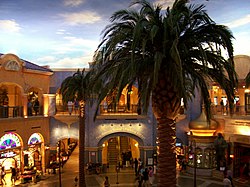



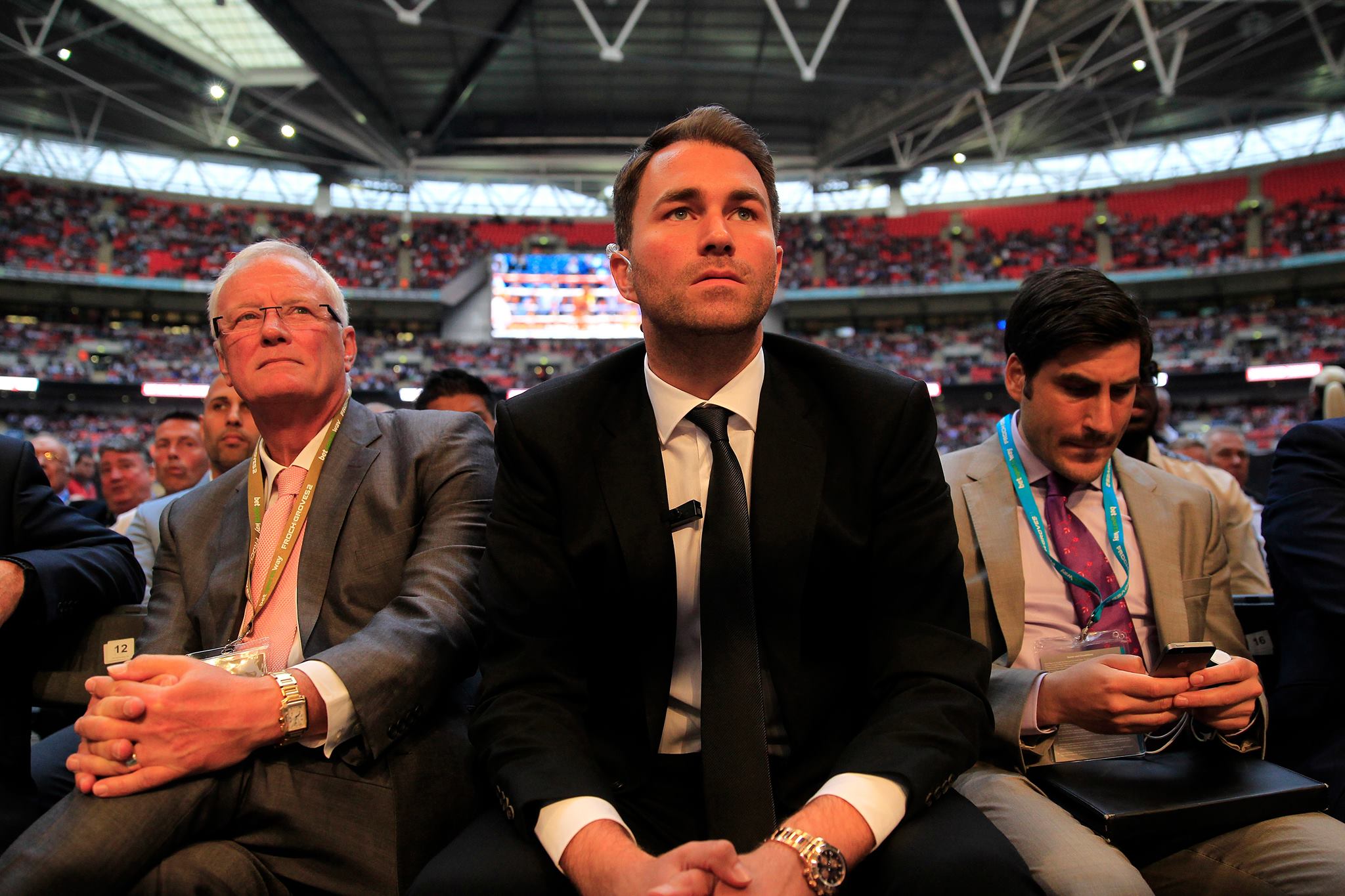
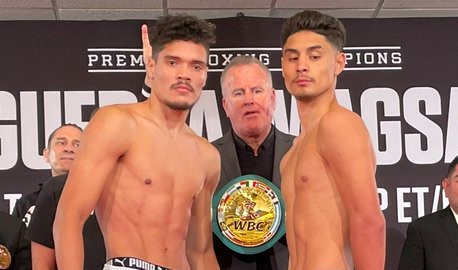
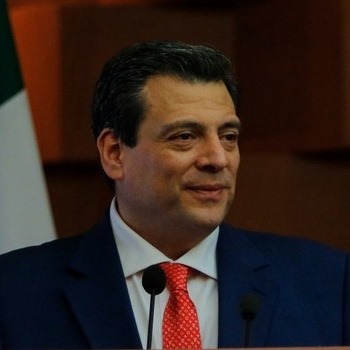



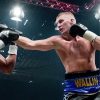

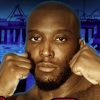

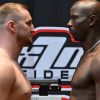
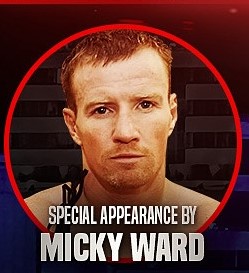

YWG Team
07/24/2024 at 10:35 am
Wonderful read! I had no idea Gerrie Coetzee was the first African to win the heavyweight title. His story is truly inspiring and a testament to the power of hard work and determination. It’s great to see more recognition being given to African athletes in the boxing world.